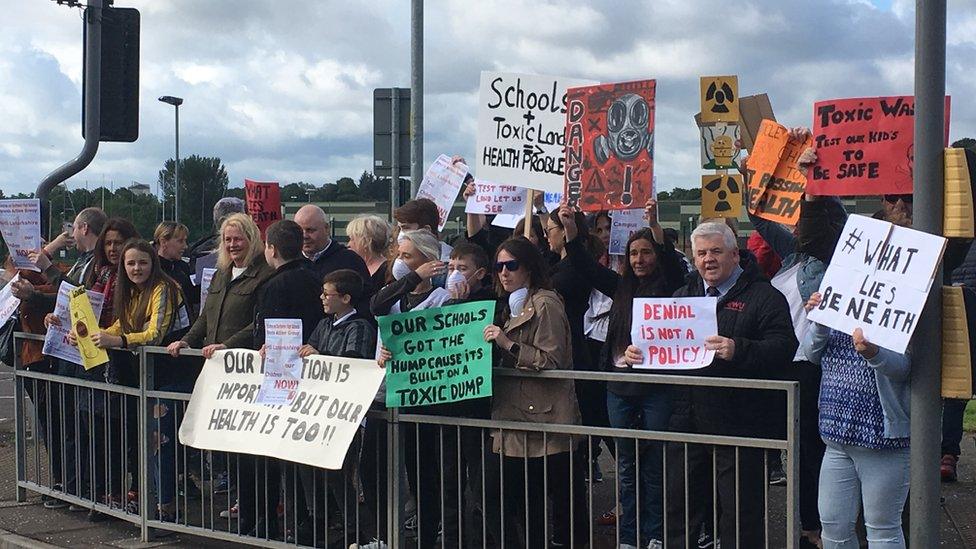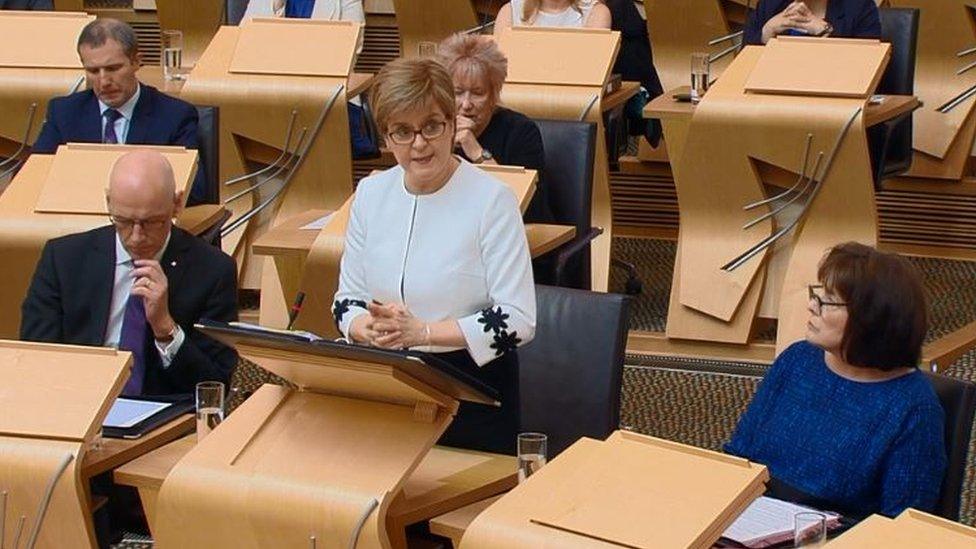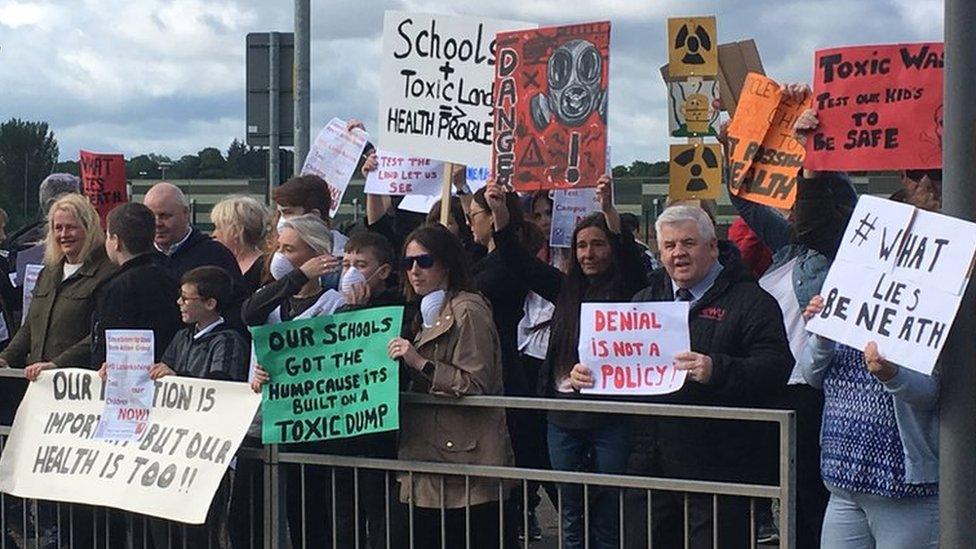Parliamentary politics at its best
- Published

Parents and pupils have turned out to support strike action by teachers at Buchanan High
Love, we are told, is a many-splendoured thing. Fret not. I'm not going to sing. Not that you would hear me, of course, but it might distress my colleagues at the BBC, who already have enough to tolerate with my many and varied eccentricities.
Politics is comparably diverse, although not always imbued with splendour. For instance, how about those two spoiled ballot papers in the latest round of the Conservative leadership contest?
Can it really be the case that two MPs were unable to complete a simple form, which required but a supportive X, marking the spot of their favour? If so, that is worrying.
Or was this a deliberate act of sabotage or protest, a yell of anguish against one or other of the remaining contenders? In which case, it is encouraging to find such spirit still thriving in the Palace of Westminster.
Either way, Ruth Davidson's favourite, Sajid Javid, was eliminated and will play no further part in the contest, save the expectation that his relatively good performance may point to ministerial advancement.
Or simply retention, which amounts to the same in these troubled days. There are other cabinet ministers who know that they are living on borrowed political time.
Ms Davidson then swiftly switched her support to Michael Gove, keen to make her mark before the final round of MP voting. Mr Gove was later eliminated.
But, amid this turmoil and diversity of purpose, there is a core element of politics which came to the fore at Holyrood, again courtesy of Ms Davidson.
I was particularly struck by a comment she made when she disclosed she had been "asked" to raise the issue of contamination worries at a school campus site in Coatbridge.
My further inquiries confirmed that she had been approached by concerned parents of pupils at the complex.

Ruth Davidson also had an eye on Westminster today, backing Michael Gove in the Tory leadership contest
Now, self-evidently, this cannot happen in all cases. Not every person with a grievance or a worry can expect, as of right, to have their issue raised with the first minister by the principal opposition leader.
But I believe the Scottish Conservative leader was entirely right to pursue this topic today at Holyrood.
And the response from Nicola Sturgeon - which was substantive, detailed and serious - suggested that she acknowledged as much.
The Scottish government has announced a review of the blue water phenomenon at the Coatbridge site, which comprises Buchanan High, St Ambrose High and Townhead Community Centre.
But, alongside the understandable concerns of the parents, pupils and staff, there is a philosophical issue at play with regard to this review.
Is it designed to investigate the issue at root? Or is it primarily designed to review existing action - and thereby to offer reassurance, to engender calm?

Ms Sturgeon told MSPs "everything possible" would be done to restore confidence
To be frank, the early language in this controversy from ministers sounded more emollient than inquisitorial. They sounded, to some extent, as if they were primarily concerned with restoring order.
Those potentially affected plainly thought the same - and responded with concern and even anger. Presumably including those who contacted Ruth Davidson.
And thence to Holyrood. Ms Davidson pursued her questions in a modest fashion, as befits the gravity of the topic. No accusations. Simply precise questions, delivered in solemn, subdued fashion.
Ms Sturgeon responded in like mode, stressing that it would be entirely open to the review team to instigate any direct inquiries they thought relevant and necessary.
There would be no obstacle to getting at the facts. No palliative, no anodyne answers. Personally, she would not rest until the issue was properly investigated.
It was parliamentary politics at its best. A serious, salient topic, with cross-party deliberation and an outcome, in terms of the assurances sought and obtained from the first minister.
All, of course, observed and scrutinised by an active, engaged and free media sector.
- Published20 June 2019

